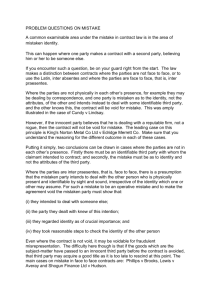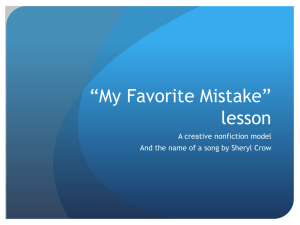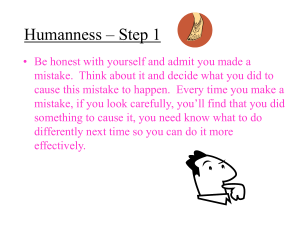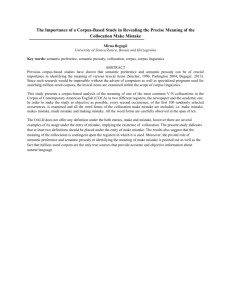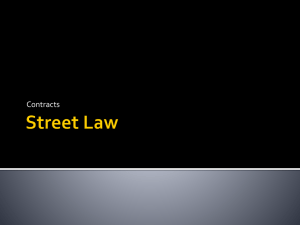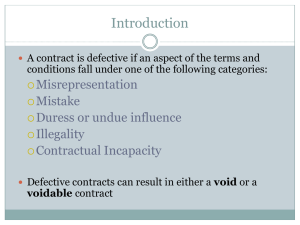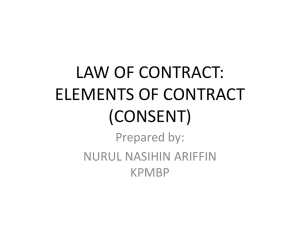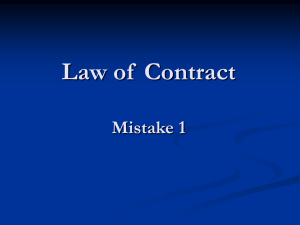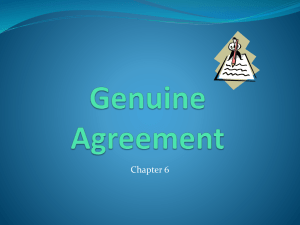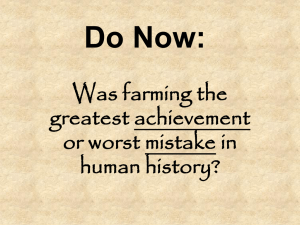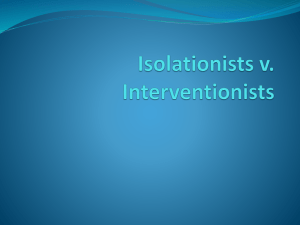Contracts 4 - carlprosper4nugs
advertisement
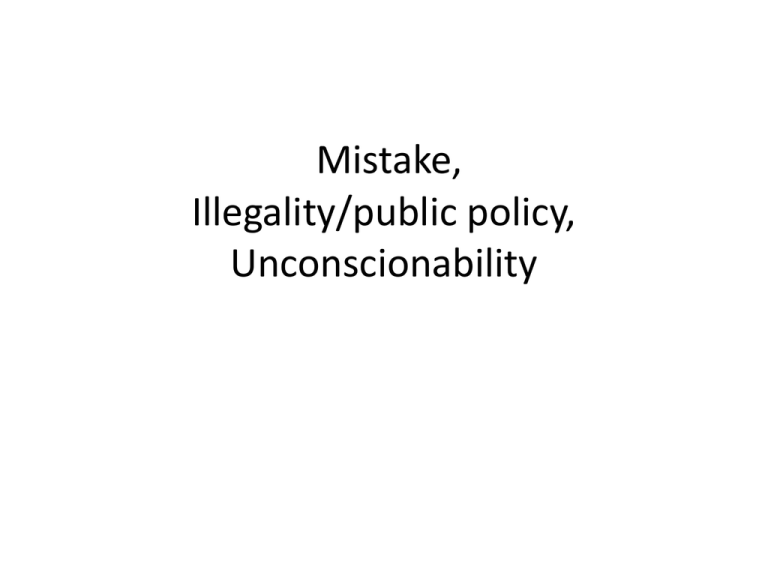
Mistake, Illegality/public policy, Unconscionability Mistake • Mistake refers to an error in judgment or an incorrect view about something • Refers to the situation where one or both parties make a mistake of fact such that there is no real consent to the contract • Mistake often renders the contract void 3 Types • Common • Mutual • unilateral Common Mistake • A situation where both parties make the same mistake about the same thing. E.g. where they both assume that the subject matter exists but which in fact does not. • Must relate to a material fact and be sufficiently fundamental to render the contract void. • E.g. A agrees to buy a house from B, unknown to both, the house has been demolished. • This renders the contract void • Where only the quality of the subject matter is affected, the contract is not void. • Leaf v. International Galleries: Leaf bought a painting mistakenly believing it was made by a well known painter. Held: contract was not void because the mistake affects only the quality and not the fundamental nature of the subject matter. Mutual Mistake • Parties are at cross heads over a key matter in the contract such that there is no true agreement. • If the facts suggest that the intention was different, then the contract is void. • E.g. A agrees to sell his house at Addokope to B. B accepts believing the house is at Kumakope. Unilateral Mistake • One party knows that the other is mistaken. If the mistake is to a fundamental issue then the contract is void. • Ingram v. Little: A person pretending to be Mr. H bought a car from 2 sisters and issued a cheque in payment. The sisters phoned the address he gave and were told there was no such person at the address. He turned out to be a fraudster. Held: sisters intended to deal with Mr. H at that address and not the fraudster. The contract is therefore void. Illegality/public policy • Contract is illegal if its creation, purpose or means is contrary to law. • Addy v. Irani: “where a contract which a plaintiff seeks to enforce is expressly proscribed, prohibited or forbidden by statute, no court will lend its assistance to give it effect” Examples • Contracts to commit crimes • To promote sexual immorality • Contracts prejudicial to administration of justice e.g., influencing a judge, giving false evidence • Contract to corrupt public life. Ampofo v. Fiorini: A, a senior civil servant in the forestry division contracted to use his position to assist F in return for 35% of profits made by F. held: contract was contrary to public policy, illegal and therefore void ab initio. • Contract to evade the payment of taxes • Contract is contrary to public policy if its enforcement would produce unsatisfactory results in society • Enforcement of any contract contrary to law will be against public policy • Generally contracts in restraint of trade are against public policy, e.g. – a contract that restricts a person’s freedom to carry on his trade or profession – Contracts to stifle business competition – Contracts to promote discrimination, racism • However the courts will enforce employee restraint contracts that are intended to protect trade secrets and business connections, and customers Unconscionability • A transaction that is oppressive, grossly unfair, or unreasonable will be voidable Exercise • Jessica went to a restaurant managed by Jeffery. Jeffery told Jessica that the price of the cocoyam fufu and ebunu ebunu soup was GHC 20 with VAT. Without Vat it would be GHC 15, Jessica decided on the GHC 15, but refused to pay after eating. • Advice Jeffery
